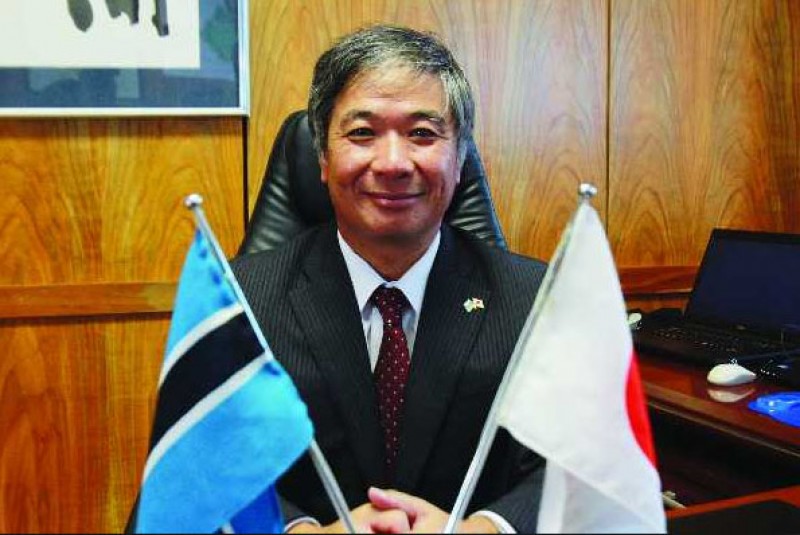Japanese Embassy Equips Humana
Onalenna Kelebeile | Monday November 19, 2018 13:24


The Japanese government and Humana signed the grant contract of P200, 000 for the project improvement of vocational training centre here as one of the 55 projects that the Embassy assisted in Botswana since 1997.
Humana started working in the former mining town in 2006 to implement projects that empower people with the tools, knowledge and skills to foster their own development in their families and communities.
While it worked for the marginalised groups such as unemployed women, people with disabilities, the organisation says it has realised the need to offer vocational skills for income generating activities and livelihood production.
Takeda said this is because the marginalised group can only be employed in the poverty eradication programme, which is a temporary relief and creates a culture of dependency.
“As a result, a community centre was opened to offer courses for technical skills.
I am pleased that our assistance of providing equipment, machinery and materials for practical training has enhanced Humana People to People activities.”
Through the Japanese assistance, 197 participants have completed their courses so far and some of them have already established their own businesses.
For agriculture course, the Japanese government donated gardening equipment like jojo tanks.
So far 54 participants have completed the programme and some of them run backyard gardens.
Two gardens were established specifically to support the sick, orphaned and vulnerable children in the community.
Under small stock course, the Japanese government donated poultry house construction materials and so far 40 participants have completed the course and some have since created groups to start income generating projects. “These outcomes clearly show the importance of vocational training and I am happy that it is achieving its mandate and concept.
We are not giving them fish and teaching them how to fish,” he said.
He added that this year marks the 30th anniversary since his government introduced the grant assistance for grassroots human security projects to 141 countries.
“We are trying to reach the pressing needs at grassroots level throughout the country. We will continue to extend our assistance to the most marginalised communities,” he added.
Selebi-Phikwe Town Council’s Finance Committee chairperson, Moses Serite said the gesture by the Japanese Embassy is a great milestone for the town’s community.
He informed the Ambassador that a majority of men were employed by the BCL Mine hence the closure left many households economically challenged leading to escalating cases of gender based violence and teenage pregnancies.
“Currently 128 students are pregnant with Selebi-Phikwe Senior Secondary School leading.
All these are a result of lack of parental guidance that exposes students to risks. Cases of vulnerable children being taken care of by Social and Community Development is also increasing,” he said.
He added that through the intervention of the Japanese government the town is able to witness some changes as men are now learning how to sew, produce vegetables and poultry farming.
He said this is commendable, as they will start their own businesses to support their families with the skills they acquired from Humana.
He also added that council has signed a 30-year lease agreement with Humana People to People Child Aid Selebi-Phikwe so that they partner in the fight to better the lives of the town’s community.
